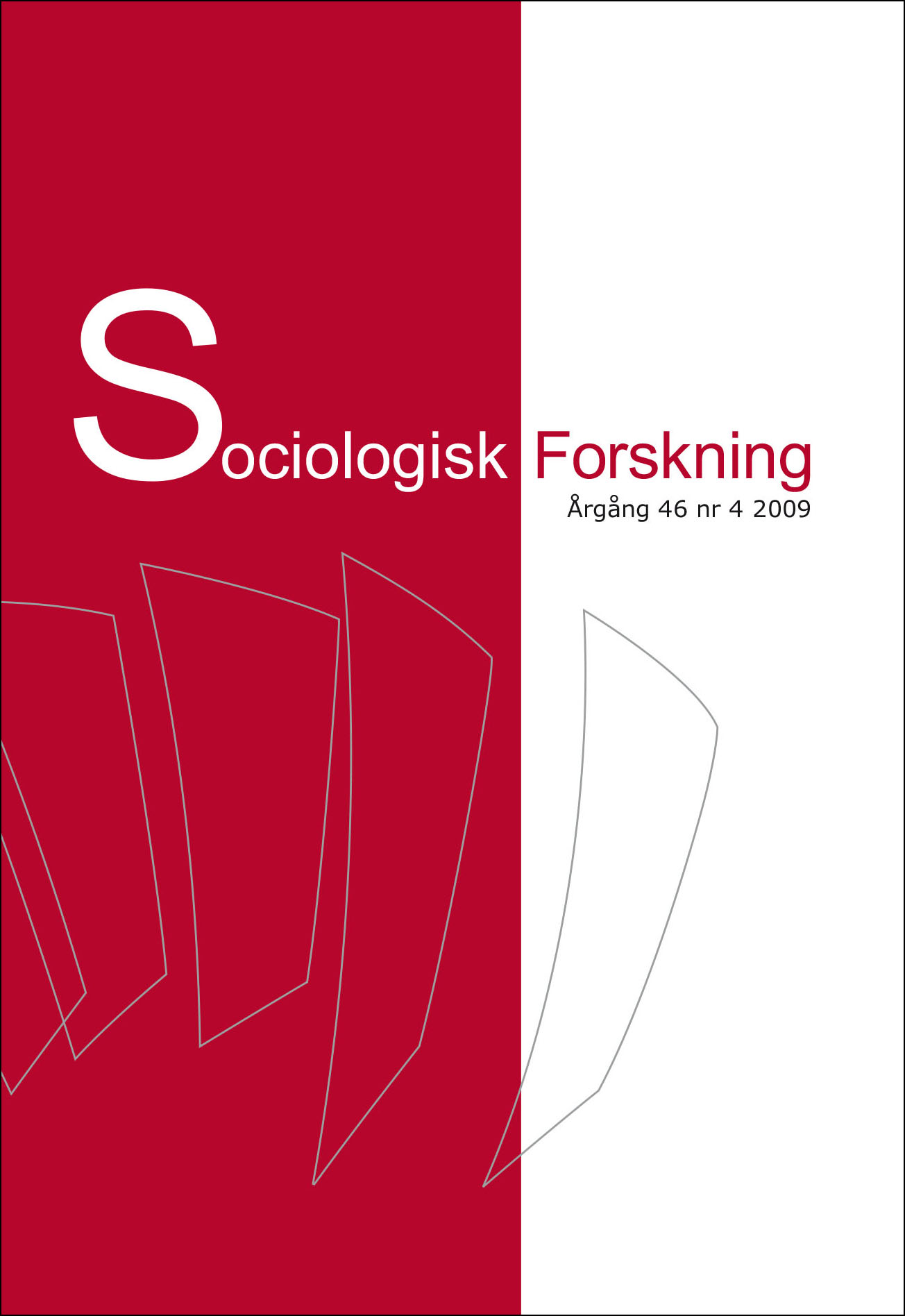Arbetslöshet som en icke önskvärd konsekvens av socialbidrag
Resultat från en tidsserieanalys på befolkningsnivå i Sverige 1946–1990
DOI:
https://doi.org/10.37062/sf.46.19219Keywords:
multiple time-series analysis, social assistance, spillover effects, Sweden, unemploymentAbstract
Unemployment as an unintended consequence of social assistance recipiency: results from a time-series analysis of aggregated population data
Does the frequency of unemployment have a tendency to increase the number of social assistance recipients, or does the relationship work the other way around? This article utilizes Swedish annual data on aggregated unemployment and means-tested social assistance recipiency in the period 1946–1990 and proposes a multiple time-series approach based on vector error-correction modelling to establish the direction of influence. First, we show that rates of unemployment and receipt of social assistance is co-integrated. Second, we demonstrate that adjustments to the long-run equilibrium are made through adjustments of the unemployment. This indicates that the level of unemployment reacts to changes in rates of social assistance recipiency rather than vice versa. It is also shown that lagged changes in the level of unemployment do not predict changes in rates of social assistance recipients in short-term. Together these findings demonstrate that the number of social assistance recipients does increase the number of unemployed in a period characterized by low unemployment and high employment.
Downloads
Published
How to Cite
Issue
Section
License
All content in Sociologisk Forskning is published with immediate open access, under the Creative Commons license CC BY-NC-ND 4.0.
All content may be read, downloaded, shared and printed for non-commercial purposes, free and without fees. Contents may not be altered. When content is reused, author, source and a link to the copyright licence must be provided. The author retains copyright to their content. No publication fees are charged.





